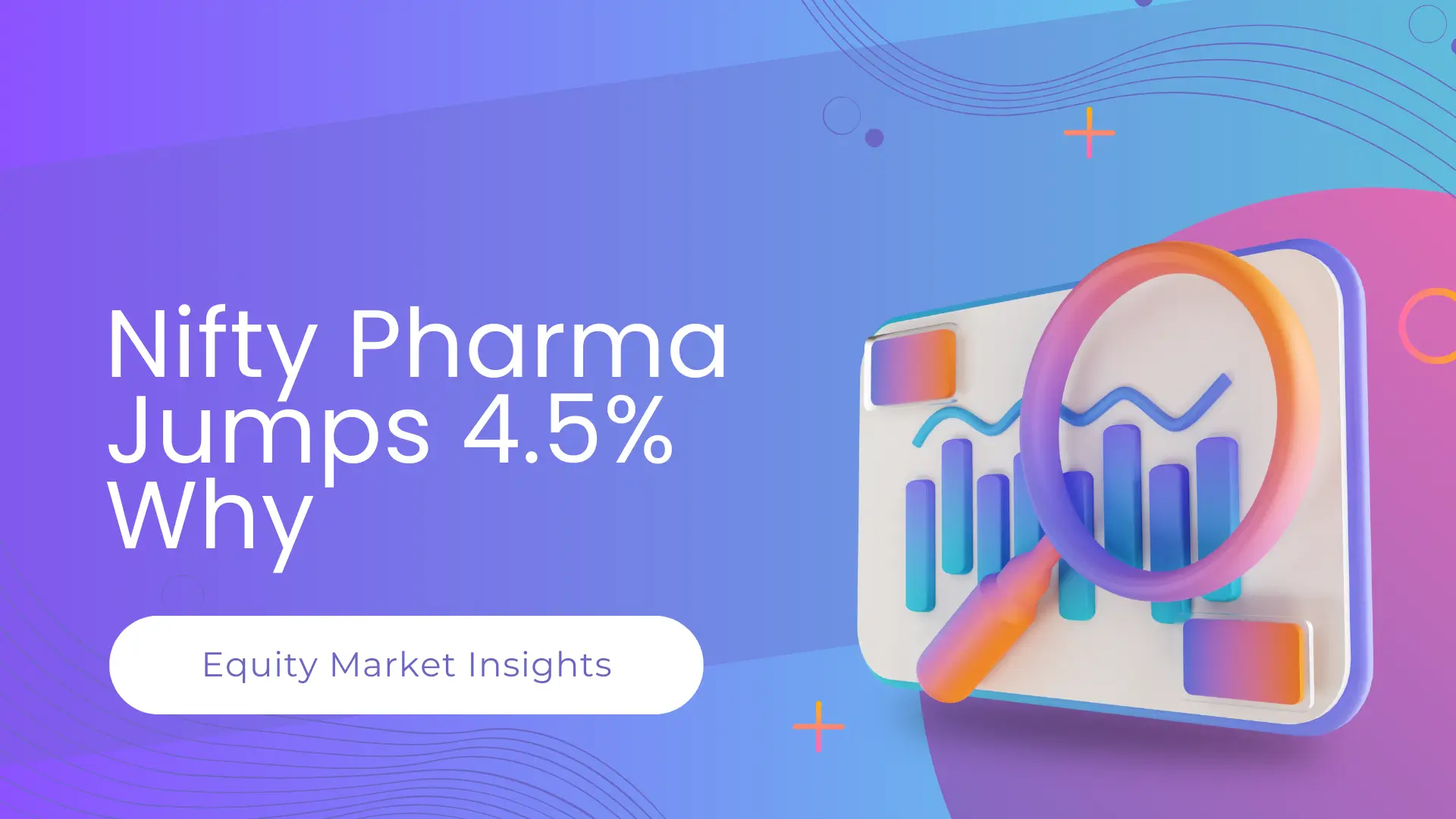The Nifty Pharma index saw a big rise today, reaching 21,851.15, up by +898.30 points (4.29%). This happened after the U.S. government announced that Indian pharmaceutical products will not be included in the new reciprocal tariffs. This news gave a strong push to Indian pharma stocks, which were under pressure for the last few months.

Check also: Trump’s ‘Discounted’ Tariffs: India to Face 26% Import Duty [Key Details & Impact]
Overview of Contents
TOP Pharma Gainers Today
- Gland Pharma: ₹1,653.75 (+7.73%)
- Lupin: ₹2,144.00 (+6.68%)
- Aurobindo Pharma: ₹1,231.55 (+6.37%)
- Sun Pharma: ₹1,810.30 (+5.64%)
- Natco Pharma: ₹843.80 (+4.62%)
- Torrent Pharma: ₹2,666.20 (+2.66%)
- Ajanta Pharma: ₹2,651.65 (+2.51%)
- Glenmark: ₹632.85 (+2.17%)
- Alkem Laboratories: ₹4,103.30 (+2.11%)
- Abbott India: ₹25,526.00 (+1.78%)
- JB Chemicals: ₹1,524.40 (+1.56%)
- Mankind Pharma: ₹2,056.75 (+1.48%)
Why Did the U.S. Remove Tariffs on Indian Pharma?
On April 2, the U.S. government announced reciprocal tariffs on many countries, including India. This means Indian products entering the U.S. would face a 26% tariff, which is half of the 52% tariff that India reportedly imposes on American goods. However, pharmaceuticals, copper, semiconductors, and lumber were exempted from these tariffs.
For Indian pharmaceutical companies, this is a huge relief. The U.S. is a major market for Indian generic medicines, which help lower healthcare costs there. If the U.S. had imposed tariffs on Indian pharma products, drug prices in America would have increased, making essential medicines costly for people.
How This Affects the Indian Pharma Sector
Before this announcement, the Nifty Pharma index had dropped nearly 10% in the last six months due to market corrections and fears of U.S. tariffs. But now, with this relief, the sector is seeing a strong recovery.
According to CLSA, the Indian pharma industry was under selling pressure due to tariff worries, but the latest U.S. decision has helped in a sharp rebound. Jefferies, another global brokerage firm, pointed out that companies with high U.S. exposure—like Zydus Lifesciences (45% sales from U.S.) and Dr. Reddy’s (43% U.S. sales)—may still face regulatory challenges, but the entire sector is now safe from new tariffs.
Can the U.S. Stop Importing Indian Medicines?
Earlier, President Trump had spoken about reducing America’s dependency on imported medicines by boosting local manufacturing. However, setting up big pharmaceutical factories in the U.S. is expensive and time-consuming. Also, Indian generic drugs help keep medicine prices low in America, making them essential for the U.S. healthcare system.
Experts believe that Indian contract research organizations (CROs) and contract development and manufacturing organizations (CDMOs) are at lower risk because some already have U.S.-based facilities for research and supply chain management. However, generic drug makers and CMOs might still face pricing pressure due to growing competition.
What’s Next for Indian Pharma Stocks?
With this positive news, pharma stocks in India are expected to keep rising. Analysts say that Indian companies focused on the U.S. market could see strong growth in the coming weeks. Investors will now focus on upcoming earnings reports and regulatory changes that might affect stock prices.
Overall, the U.S. decision to remove tariffs on Indian medicines has boosted investor confidence in the Indian pharma sector. As global demand for affordable drugs increases, Indian pharmaceutical companies have a great opportunity to grow further.
